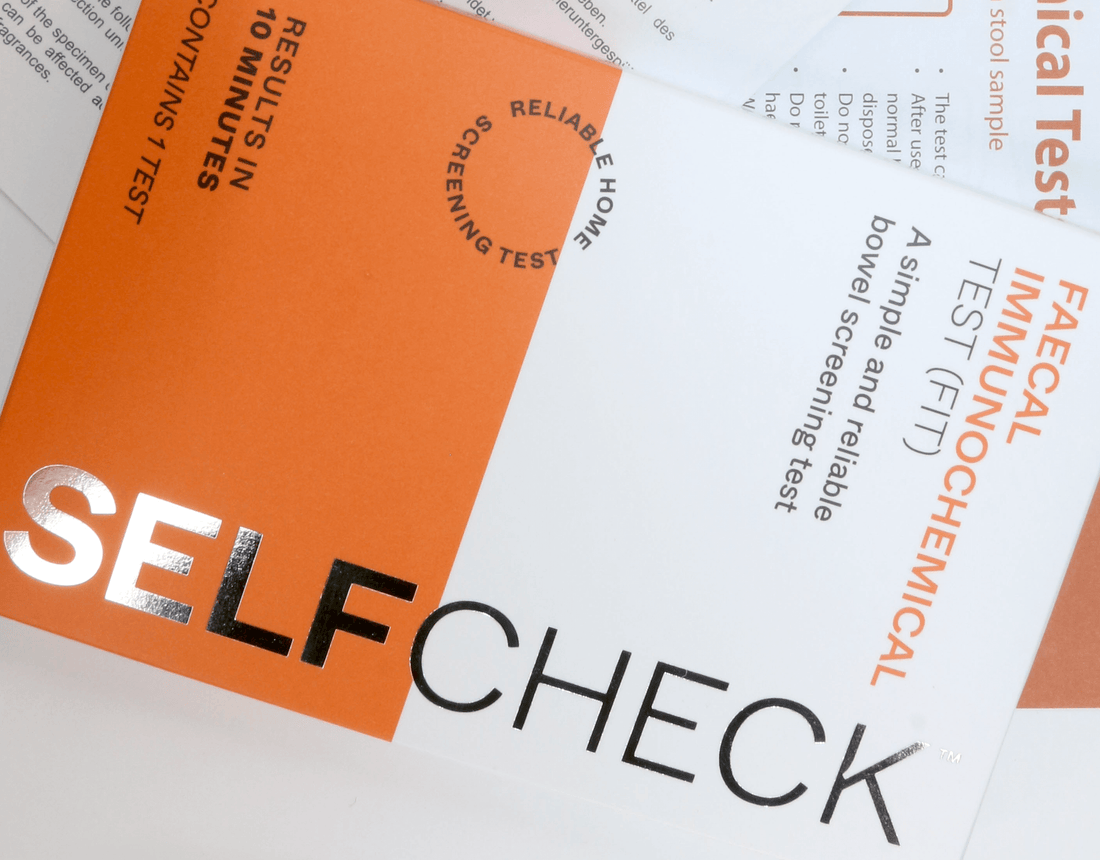Bowel cancer is the fourth most common cancer in the UK with more than 40,000 people being newly diagnosed each year. It is more common in people over the age of 50, but it can affect anyone of any age. If diagnosed early enough, bowel cancer can be treated and cured. Early diagnosis can save lives.
The original faecal occult blood test (gFOBT) for bowel cancer screening, used a chemical called guaiac acid to produce a colour change when it reacted with blood in a stool sample. However, despite being very simple, the gFOBT is not specific for human blood and can lead to false positive results, and unnecessary worry, as the test can also detect blood from meat in the diet.
The gFOBT has now been superseded by the more sensitive and specific faecal immunochemical test (FIT) which uses immunological principles, and is currently used for NHS bowel screening programmes.
The FIT detects traces of blood in a sample of faeces that can't be seen by eye.
About the SELFCHECK Faecal Immunochemical Test (FIT)
The SELFCHECK Faecal Immunochemical Test (FIT) is a simple 10 minute self-test kit that you use at home to detect human blood in faeces. The detection limit is comparable to thresholds currently used in UK bowel cancer screening programmes (2023). Although faecal immunochemical tests are used for bowel cancer screening, blood may be present in faeces for other reasons such as ulcers or haemorrhoids. Colon polyps are known to bleed intermittently, and testing samples from different days increases the probability of detecting blood compared to sampling on just one occasion.
The SELFCHECK test uses a pair of highly specific antibodies producing a coloured line next to the letter T on the test cassette when blood is present in the sample.
When can SELFCHECK test be used?
The SELFCHECK Faecal Immunochemical Test (FIT) can be performed at any time of day. Like all wellness tests, you should carefully consider what a result might mean to you before deciding to test.
Can the result be incorrect?
The result is reliable as long as the instructions have been carefully followed. Nevertheless, the result may be incorrect if the components get wet before performing the test, the sample collecting steps are not followed correctly, the stool sample is contaminated with blood from another area such as cuts, haemorrhoids, or menstruation, or an incorrect number of drops of sample were added to the sample well.
What is the accuracy of the SELFCHECK Faecal Immunochemical Test (FIT)?
This device has been used for more than 10 years by health care professionals. Evaluation reports show an overall agreement of at least 93% (86.78 - 97.17*) with different reference methods. Although this test is reliable, all medical tests may give a small number of false positive or false negative results.
*CI 95%: 95%confidence interval
Further information on bowel cancer screening
- Bowel Cancer UK
- NHS Bowel Cancer Screening
- Bowel Cancer Screening Programme
- Quantitative faecal immunochemical tests to guide referral for colorectal cancer in primary care. NICE Diagnostics guidance [DG30] Published: 26 July 2017
For further information on the SELFCHECK Faecal Immunochemical Test kit click here
Updated 29th November 2023
Always consult your doctor before making any important medical decisions

